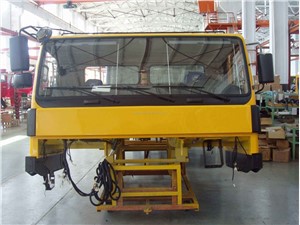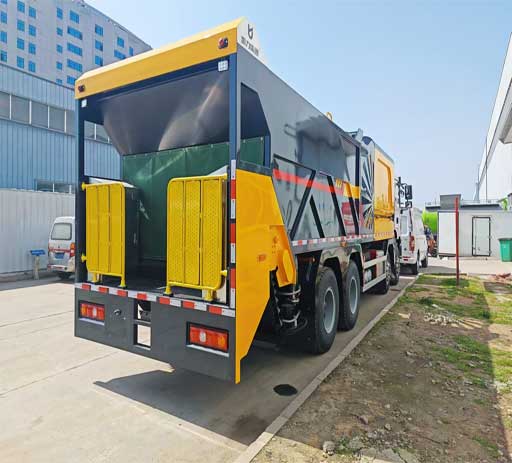Truck Component Services: Understanding Maintenance, Repair, and Enhancement
Introduction
Truck component services are essential for ensuring the operational efficiency and longevity of commercial vehicles. With the increasing demands on trucks due to logistics and transportation, understanding the various services available for different truck components has become a priority for fleet operators and individual truck owners alike. This article will explore everything related to truck component services, ranging from routine maintenance and repairs to advanced enhancements and specific services catered to vital components such as engines, brakes, and transmission systems. By the end of this article, readers will have a comprehensive understanding of truck component services, enabling them to make informed decisions for their vehicles.
1. The Importance of Truck Component Services
Regular maintenance is crucial for the performance and safety of trucks. Failing to properly maintain truck components can lead to severe issues that not only affect the vehicle’s performance but also pose safety risks on the road.
1.1 Cost Efficiency
An effective maintenance plan significantly reduces long-term expenses. By identifying and addressing minor issues early, truck owners can avoid costly repairs and downtime.
1.2 Safety Assurance
Trucks are often involved in heavy-duty operations, so ensuring all components are functioning properly is vital for the safety of drivers and others on the road. Regular checks on brakes, lights, and tires help in preventing accidents.
1.3 Extended Equipment Life
Regular servicing extends the life of truck components, thus preserving the investment made in the vehicle. Proper care means components can reach or exceed their expected lifespan.
2. Key Components and Services
2.1 Engine Services
The engine is the heart of the truck. Services include:
- Oil changes and fluid checks
- Filter replacements (air, oil, fuel)
- Engine diagnostics to detect performance issues
2.2 Brake Services
Brakes are crucial for safety. Services in this category should be performed regularly:
- Brake pad replacement
- Rotors resurfacing or replacement
- Brake system inspections
2.3 Transmission Services
The transmission is key for vehicle functionality. Regular checks include:
- Fluid level checks and changes
- Transmission flushes
- Diagnostic tests for shifting issues
2.4 Suspension Services
The suspension system affects ride quality and handling. Important services include:
- Shock absorber replacements
- Spring inspections
- Alignment checks
2.5 Exhaust System Services
The exhaust system needs regular inspection to reduce emissions and improve performance:

- Checking for leaks
- Replacing mufflers and catalytic converters as necessary
- Cleaning the exhaust system
2.6 Electrical System Services
As trucks become more technologically advanced, the electrical system requires regular attention:
- Battery checks and replacements
- Inspection of wiring and connectors
- Diagnostic tests for electrical faults
3. Regular Maintenance vs. Emergency Repairs
Understanding the difference between regular maintenance and emergency repairs is vital for truck owners.
3.1 Regular Maintenance
Regular maintenance includes scheduled services recommended by the manufacturer based on certain mileage. Examples include oil changes every 5,000 miles or brake inspections every 10,000 miles.
3.2 Emergency Repairs
Emergency repairs occur when a component fails unexpectedly. This could involve engine failure, brake issues while on the road, or problems with the electrical system that render the truck inoperable.
4. Finding the Right Truck Component Service Provider
Choosing the right service provider is critical for maintaining your truck components.
4.1 Certifications and Reputation
Look for providers with certifications from recognized automotive bodies and positive customer reviews. These indicators can reflect the quality and reliability of the service.
4.2 Range of Services
Select a provider that offers a comprehensive range of services, ensuring all your truck’s needs can be met under one roof.
4.3 Customer Support
Good customer service ensures effective communication about needs and concerns, which is crucial for long-term maintenance planning.
5. Common Issues and Solutions in Truck Component Services
Many truck owners face common component issues that need addressing during service.
5.1 Overheating Engine
Often caused by low coolant levels, a ruptured hose, or a failed thermostat. Solution: Perform a cooling system inspection and necessary repairs.
5.2 Worn Brake Pads
Signs of worn brake pads include squeaking noises or reduced braking power. Solution: Replace brake pads and inspect rotors.
5.3 Erratic Shifting in Transmissions
This could indicate low transmission fluid or other internal problems. Solution: Check fluid levels and perform a transmission diagnostic.
5.4 Poor Suspension Handling
New symptoms in handling or excessive bouncing could point to worn shocks. Solution: Inspect and replace any worn components.
6. The Role of Technology in Truck Component Services
New technologies significantly enhance truck component services.
6.1 Diagnostic Tools
Advanced computer diagnostics can quickly pinpoint issues, saving time and money in repairs.

6.2 Maintenance Software
Fleet maintenance management software enables tracking of service schedules, helps in budgeting, and maintaining records easily.
6.3 Telemetry Systems
Real-time monitoring systems can provide data on vehicle performance, allowing for proactive maintenance before issues arise.
7. Practical Tips for Truck Owners
As a truck owner, maintaining a proactive stance can save money and improve safety.
7.1 Keep a Maintenance Log
Document all services, repairs, and inspections to track performance and identify patterns over time.
7.2 Regular Checks Between Services
Perform routine checks on fluid levels, tire pressure, and brake response to catch problems early.
7.3 Build Relationships with Service Providers
A good working relationship with a local provider can help you get honest assessments and potentially better pricing.
8. Cost of Truck Component Services
The cost of services can vary widely depending on location, service type, and vehicle age.

8.1 Average Costs
Here is a breakdown of average costs associated with common services:
| Service | Average Cost |
|---|---|
| Oil Change | $50 – $100 |
| Brake Pad Replacement | $150 – $300 |
| Transmission Fluid Change | $150 – $250 |
| Suspension Inspection | $100 – $200 |
FAQs
1. How often should I service my truck components?
It’s generally recommended to service your truck every 5,000 to 7,500 miles, but this can vary depending on the manufacturer’s guidelines and the use of the truck.
2. What are the signs that my truck needs immediate servicing?
Signs include unusual noises, warning lights on the dashboard, decreased performance, and noticeable mechanical issues like leaking fluids.
3. Can I perform truck maintenance myself?
Some basic maintenance tasks like changing oil or replacing air filters can be done by individuals with the right tools and knowledge. However, more complex tasks should be left to professionals.
4. How do I know if I need a new component instead of a repair?
A qualified technician can assess your component. If extensive repairs are needed more frequently or if performance doesn’t improve, replacement may be necessary.
5. Are there warranties on services provided?
Many service providers offer warranties on their parts and labor. Always ask about this to protect your investment.
6. What should I do if my truck breaks down?
If your truck breaks down, ensure safety first, use hazard lights, and contact a roadside assistance service or a tow truck to move your vehicle to a service center.
